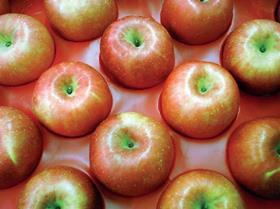
India’s continued ban on Chinese apples is having a “significant” effect on China’s exporters, since shippers must find alternative markets for their large Fuji volumes, say traders.
Most of the fruit formerly destined for India will be sold to South East Asian countries, such as Indonesia, the Philippines and Malaysia; as well as Bangladesh, Pakistan and the Middle East, according to key players. A proportion will also remain on the domestic Chinese market.
“The Indian market accounts for a huge portion of the Chinese Fuji export market, so the ban has a significant impact on most of the shippers from China,” says Sam Sin, export manager of Shandong-based apple shipper HYJCT. “Many of the exporters need to find new or other channels to move their stock, especially premium grade apples.”
Last year, China exported 170,000 tonnes of apples to India, according to Steven Leung, co-founder of Chinese apple packing facility Alfa Fruit Packers. “Therefore, of course, the ban will affect both the export and domestic market,” he says.
India’s import suspension will cost China’s apple industry dearly, believes Tarun Arora of major Indian importer IG international, since China was on course to export 200,000 tonnes to India this year, worth around US$200m.
Indeed, some sources in the trade suggest the ban is an attempt to control the volume of Chinese apples entering India, following a deluge of arrivals in 2015/16. Last season, Chinese apples accounted for almost 70 per cent of India’s total apple imports, according to Arora.
The Indian embargo, in place since June due to persistent pest interceptions, comes in a year when China is expecting a bumper apple crop, thanks to significant yield increases in certain provinces, such as ShaanXi and Gansu, shippers reveal.
“In general, the total [Chinese] production will be up this year,” says Sam Sin of HYJCT. “We expect increased pressure in the domestic market as a result of this production rise.”
His company, which recently invested over CNY30m in its Shandong apple-packing facilities, hopes to make the most of China’s increased production and Europe’s apple shortfall by boosting its shipments to European supermarkets this year.
“We have been supplying the overseas retail sector since 1999,” says Sin, “and we hope to increase our supermarket programme volume to the European and Middle Eastern markets in the coming season. With the increased Chinese production and shortfall in EU volumes, Chinese apples will be more competitive in pricing.”
As for the Indian market, some in the trade believe it will be back open for business before the year is out.
“Our clients told us India will open again in November,” reveals Celeste Liu, export manager at Chinese apple distributor Hongfong, “We have been led to expect Indian inspection officers in our factories before then.”



